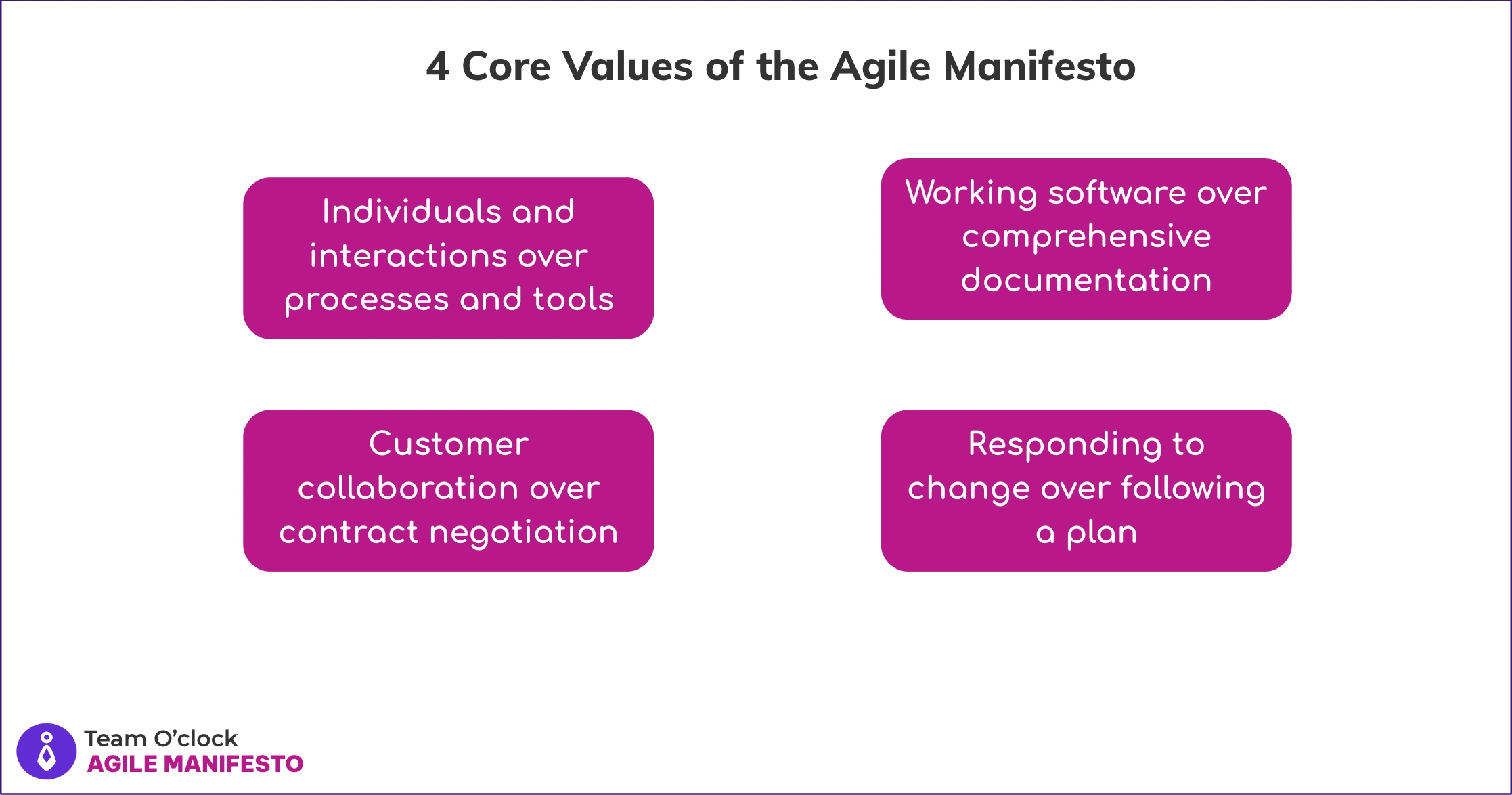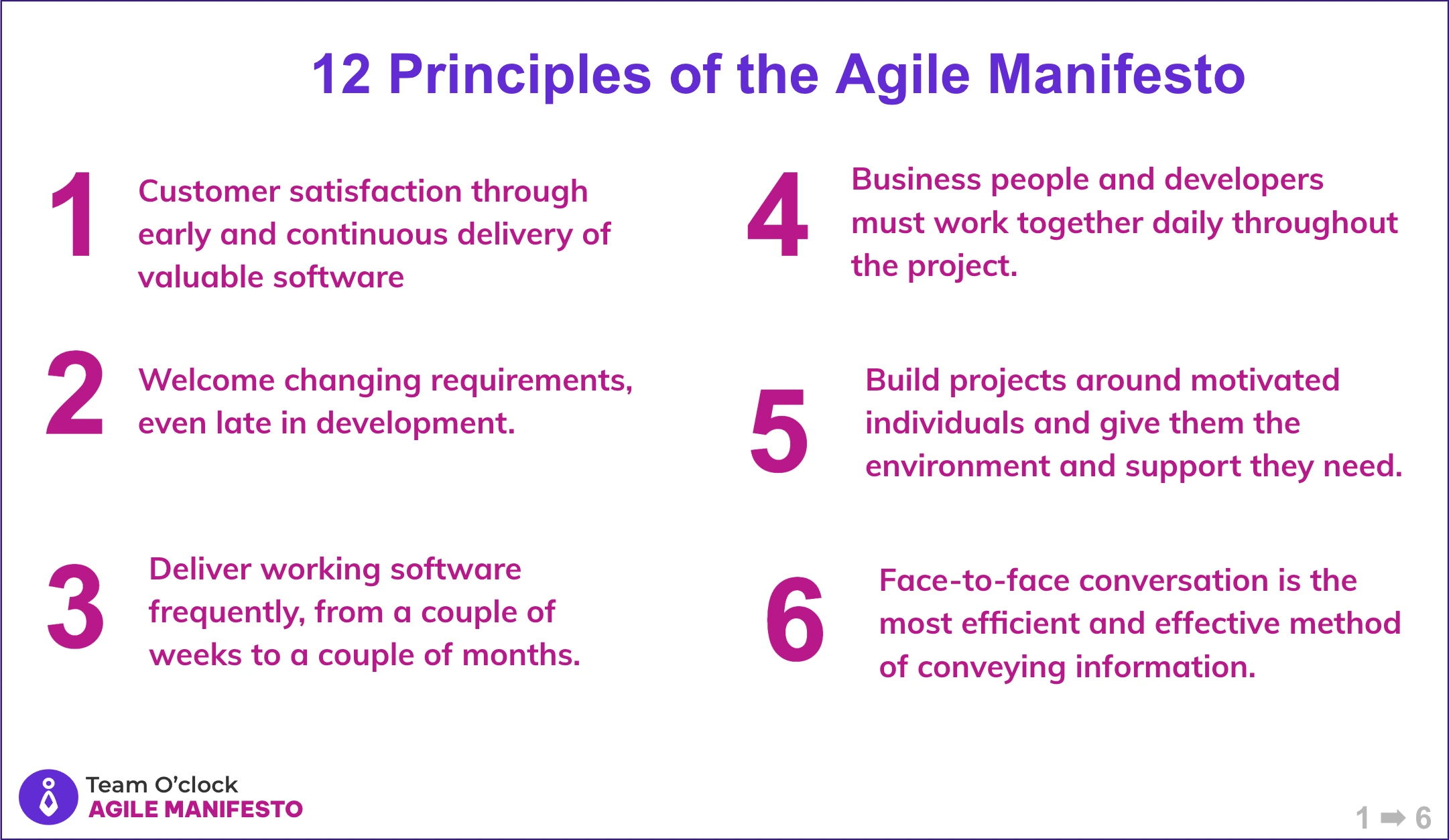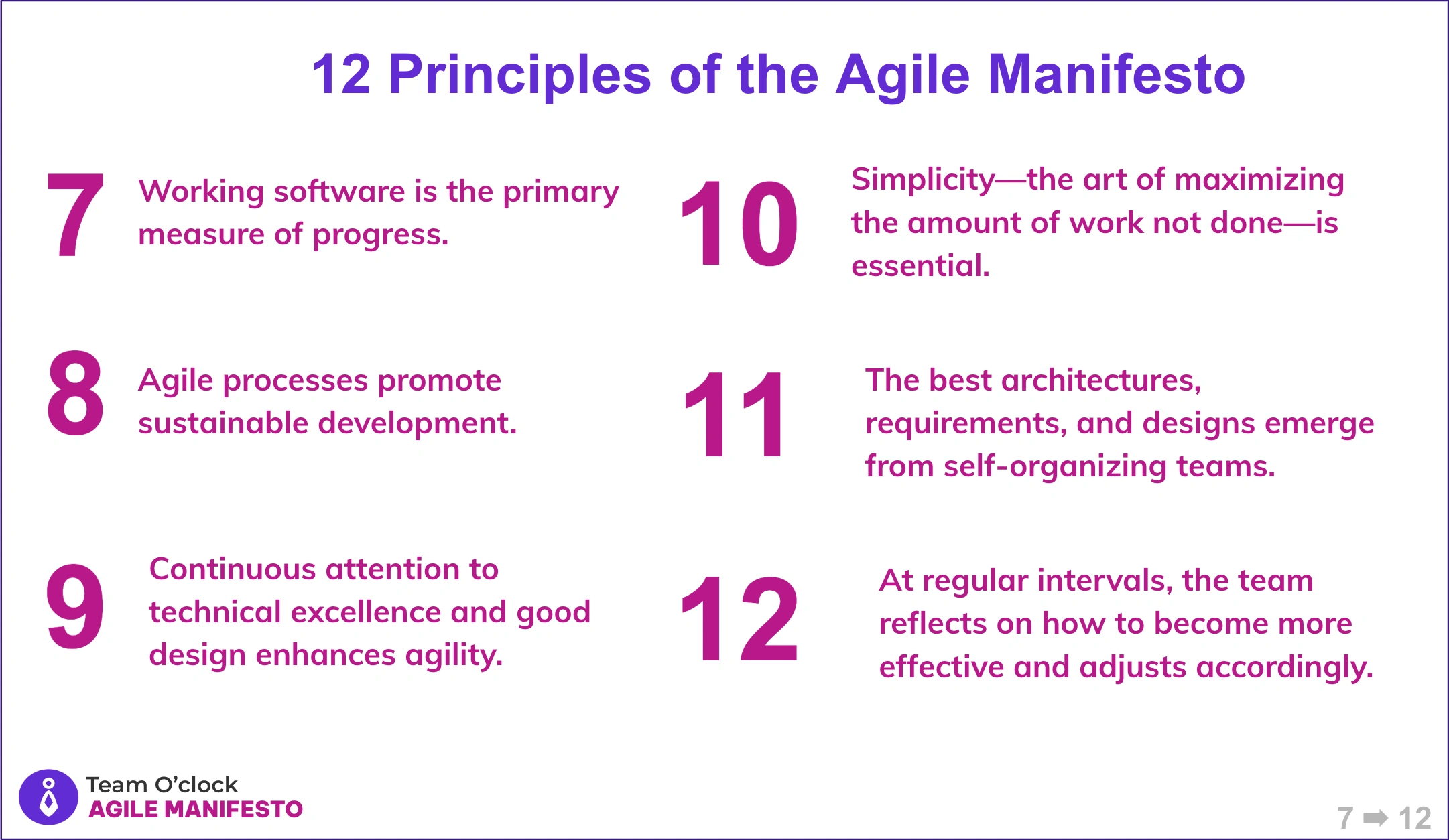Is Elon Musk's Algorithm Inspired by the Agile Manifesto?
What is the Agile Manifesto about? What can you copy from Elon Musk's unbeatable strategy and implement it in your own team? This blog will answer all of that.

Blog - AgileManifestoNew: Hero Image
The Agile Manifesto is already 23 years old, and there are still companies that swear up and down for the effectiveness of their Waterfall processes. But are they genuinely effective, or are the managers afraid of the much-needed change?
If you took a cold, hard look at your processes and your team desperately needs a collaborative approach and efficient systems, you might want to go back to the Agile manifesto basics to get all the answers you are looking for.
What is the Agile Manifesto about? Why should you care about it? What can you copy from Elon Musk's unbeatable strategy and implement it in your own team? This blog will answer all of that. Let's dive in.
What is the Agile Manifesto?
The Agile Manifesto is a foundational document that outlines the core values and principles of the Agile methodology. Its primary purpose is to improve software development processes with efficient solutions.
Why and When Was It Created?
In 2001, 17 software developers came together to create a manifesto in response to the challenges and limitations they faced with traditional software development methods during the 1990s. They were frustrated by the slow, rigid, and documentation-heavy processes that struggled to keep up with changing requirements and customer needs. To address these issues, they aimed to create a more flexible, collaborative, and customer-centered approach.
This manifesto emphasized the importance of empowering development teams, focusing on customer satisfaction, and embracing adaptability. Their vision ultimately transformed software development practices and left a lasting impact on industries far beyond just software.
The Values and Principles of the Agile Manifesto

The four values of the agile manifesto stating: Individuals and interactions over processes and tools, Working software over comprehensive documentation, Customer collaboration over contract negotiation, Responding to change over following a plan
To successfully adopt the Agile mindset, new teams should deeply understand the four core values and the 12 principles of the Agile Manifesto. The core values serve as the foundation for Agile practices. These values emphasize the importance of human collaboration, delivering functional products, engaging with customers throughout the process, and staying adaptable in the face of change.
Complementing these values are the 12 principles that offer practical guidance. These values and principles encourage teams to be customer-centric, flexible and focused on delivering quality products through continuous collaboration and improvement. By internalizing these guidelines, new teams can cultivate a more responsive, adaptive, and efficient approach to software development.

The first 6 principles of the Agile manifesto, talking about: Customer satisfaction, Welcome changing requirements, Deliver working software frequently, Business and tech together, Build projects around motivated individuals, Face-to-face communication

Agile manifesto principles 7 to 12, talking about: Working software as primary measure, Maintain a sustainable pace, Attention to technical excellence, Simplicity is essential, Self-organizing teams, Regular reflection and adjustment
Lean Thinking is The Answer
Lean thinking offers a powerful approach for Agile teams seeking to return to the foundational principles of the Agile Manifesto. At its core, lean thinking emphasizes maximizing value while minimizing waste, which aligns seamlessly with Agile's focus on delivering functional, high-quality software quickly and efficiently.
By stripping away unnecessary processes and focusing on what truly adds value, lean thinking helps teams stay true to Agile's original intent: prioritizing individuals, working software, customer collaboration, and responsiveness to change.
For companies, embracing lean principles has led to remarkable improvements in their software development processes. By eliminating wasteful practices, such as excessive documentation, redundant approvals, and unnecessary meetings, companies have streamlined their workflows and reduced time-to-market.
This, in turn, has made them more responsive to customer needs and better equipped to adapt to changing market conditions. For instance, companies like Toyota and Spotify have successfully implemented lean principles in their Agile practices, resulting in highly adaptive and efficient development processes.
These companies have shown that by focusing on continuous improvement, respecting team autonomy, and delivering incremental value, it's possible to maintain a high level of agility and innovation.
New teams can learn valuable lessons from these successes. By adopting lean thinking, they can avoid the pitfalls of over-complication and stay focused on delivering what matters most: high-quality software that meets customer needs.
Lean encourages teams to continuously reflect on their processes, identify areas of waste, and make incremental improvements. This mindset fosters a culture of adaptability, where teams respond to change and proactively seek ways to enhance efficiency and effectiveness. Ultimately, lean thinking supports Agile teams in staying true to the manifesto's core values, ensuring they remain agile in both practice and spirit.
Do it Like... Elon
Elon Musk's 5-step "algorithm" for productivity and efficiency offers a robust framework that your team can use to streamline processes and achieve impressive outcomes.
His approach begins with a critical principle: question requirements, especially those from smart people. This encourages teams to challenge assumptions and simplify processes by stripping away unnecessary complexity.
Next, Musk advocates deleting any part or process that isn't essential, adding only what's truly needed as the project progresses. This ensures that teams remain focused on delivering value without getting bogged down by redundant steps.
Once the process is pared down, Musk emphasizes simplifying and optimizing, but only after eliminating unnecessary elements. This order of operations prevents teams from wasting time refining aspects that might not be needed at all.
From there, Musk encourages teams to speed up processes, pushing for efficiency and faster delivery without compromising quality.
Finally, he suggests automating what's left, using technology to handle repetitive tasks, freeing human creativity for more complex problem-solving.
In addition to these foundational tips, Musk offers bonus advice for leaders and teams.
He insists that technical managers must have hands-on experience—practical knowledge makes for better leadership and decision-making. He also highlights the importance of intellectual humility: It's OK to be wrong, just don't be confident and wrong.
Musk also advises employees to occasionally bypass their immediate managers to engage with those on the ground, fostering a deeper understanding of challenges and opportunities.
Lastly, he emphasizes that the only true rules are those dictated by the laws of physics; everything else is a recommendation, urging teams to question conventional wisdom and innovate beyond perceived limitations.
Following this framework can significantly enhance your team's productivity, drive innovation, and build businesses with the same relentless efficiency typical of Musk's ventures.
Takeaway
Whether you're inspired by the Agile Manifesto or Elon Musk's winning algorithm, the key takeaway is the importance of simplifying processes, embracing change, and continuously improving your approach.
By questioning existing requirements, eliminating unnecessary steps, and focusing on delivering value, your team can achieve the same level of agility and efficiency seen in some of the world's most successful companies.
Ready to put these principles into practice?Get started with Team O'Clock today and explore agile solutions that can help you streamline your workflows, enhance collaboration, and drive successful projects.
Author: Irene Karatoliou
Irene is a content manager and founder of a marketing agency, partnering with lead companies to develop brand messaging, community engagement, and drive marketing growth.
Like this project
Posted Aug 20, 2024
What is the Agile Manifesto about? What can you copy from Elon Musk's unbeatable strategy and implement it in your own team? This blog will answer all of that.
Likes
0
Views
6







